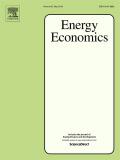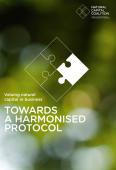Readiness is a concept interchanged with preparedness and, many assume, adequate knowledge. Simple as it may be, readiness denotes a complex interaction of parameters and conditionalities required for an uptake of a phenomenon – in the context of this article, green economy transition. Following deliberations to and from Rio + 20, there is no doubt the world is set to undertake green economy as a means to attaining sustainable development, poverty eradication, job creation and equity evermore. At the heart of the green economy is the need to address negative impacts associated with one of the key global challenges of our epoch, climate change. The question this article seeks to address is: To what extent is South Africa green economy ready? Focusing on the national sphere of government, the article concludes that this country has moved swiftly in addressing key readiness parameters, including high-level commitment and stakeholder buy-in, enhancing institutional set-up, developing the necessary legislation, establishing funding mechanisms and having programmes running on the ground.
This article examines the potential contribution of household scale off-grid renewable energy generation to the post-carbon economy. The large-scale focus of the green jobs agenda in high-income countries obscures how small-scale technologies can be a transformative source of employment in developing economies. Debates about what constitutes a green job and their value leaves out the everyday practice of green livelihoods carried out by the urban poor across the African continent in unfavourable institutional contexts where nonrenewable fuel is subsidised and renewable energy inputs are heavily taxed. The article presents experiences from field work in several countries, including Egypt, Nigeria and Kenya to provide practical examples of communities pursuing strategies of income generation, community empowerment and environmental preservation. It argues that scholars and practitioners concerned with both social justice and environmental preservation should embrace a definition of green jobs that is bottom-up or people-centred.
In the wake of the global financial crisis, interest in the relationship between the economy and the environment substantially increased. Several proposals emerged between 2008 and 2012 for the creation of a ‘Green New Deal’, ‘Green Stimulus’, and a ‘Green Economy’. These proposals are often conflated with one another under the rubric of ‘green capitalism’, but there are important distinctions to be made between them. Each suggests a different role for the state in regulating the market and the financial sector (i.e. they suggest different models of capitalism). The proposals can also be distinguished by the positions taken on ecological modernisation (i.e. they put forward different models of ‘greenness’). Recognition that there are varieties of green capitalism being mooted increases the opportunities for more targeted critiques of each model and enables a more constructive debate about the options for creating sustainable economies in the developed world.
The social goals of reducing unemployment and enabling ecologically sustainable development are more likely to be achieved if the spatial dimensions of economic policy are made explicit. Looking from this perspective, this article considers recent policy initiatives undertaken by the federal Labor government in response to the global financial crisis. Investment in infrastructure is assessed by comparing where government expenditure is being targeted with the regional distribution of unemployment. The expansion of ‘green’ jobs is considered in relation to the prospects of marrying concerns of growth, equity and sustainability with proactive urban and regional policies.
This article describes a multidisciplinary study of market-based policies for controlling air pollution in China. While previous studies have examined the costs and benefits of pollution control separately, this approach determines them together using an economy–environment model for China. We employ air dispersion simulations and population maps to calculate health damages due to air pollution. This provides estimates of incremental damages for industry output and fuel use. Based on these marginal damages, we simulate the effect of “green taxes” on the economy and show that the environmental benefits exceed the aggregate costs, ignoring adjustment costs for individual sectors.
This paper argues that the 2009 pledge of $100 billion in 2020 by rich countries for mitigation and adaptation should not be used for mitigation by commercial firms in developing countries, since that would artificially create competitive advantage for such firms and provoke protectionist reactions in the rich countries where firms must bear the costs of mitigation, thereby undermining the world trading system. The costs of heating the earth's surface should be borne by all emitters, just as the price of copper and other scarce resources is paid by all users, rich or poor. That will still leave scope for rich country help in adaptation to climate change and in bringing to fruition new technologies to reduce emissions.
This article appeared in the Energy Economics Supplemental Issue: Green Perspectives.

Large public investments in clean energy technology arguably constitute an industrial policy. One rationale points to market failures that have not been corrected by other policies, most notably greenhouse gas emissions and dependence on oil. Another inspiration for clean energy policy reflects economic arguments of the 1980s. It suggests strategic government investments would increase U.S. firms' market share of a growing industry and thus help American firms and workers. This paper examines the reasoning for clean energy policy and concludes that:
Over the past several years, labeling schemes that focus on a wide range of environmental and social metrics have proliferated. Although little empirical evidence has been generated yet with respect to carbon footprint labels, much can be learned from our experience with similar product labels. We first review the theory and evidence on the role of product labeling in affecting consumer and firm behavior. Next, we consider the role of governments and nongovernmental organizations, concluding that international, multistakeholder organizations have a critical part to play in setting protocols and standards. We argue that it is important to consider the entire life cycle of a product being labeled and develop an international standard for measurement and reporting. Finally, we examine the potential impact of carbon product labeling, discussing methodological and trade challenges and proposing a framework for choosing products best suited for labeling.
This article appeared in the Energy Economics Supplemental Issue: Green Perspectives.
The experiences of the largest corporation in the world and those of a start-up company show how companies can profitably reduce greenhouse gas emissions in their supply chains. The operations management literature suggests additional opportunities to profitably reduce emissions in existing supply chains, and provides guidance for expanding the capacity of new “zero emission” supply chains. The potential for companies to profitably reduce emissions is substantial but (without effective climate policy) likely insufficient to avert dangerous climate change.
This article appeared in the Energy Economics Supplemental Issue: Green Perspectives.

